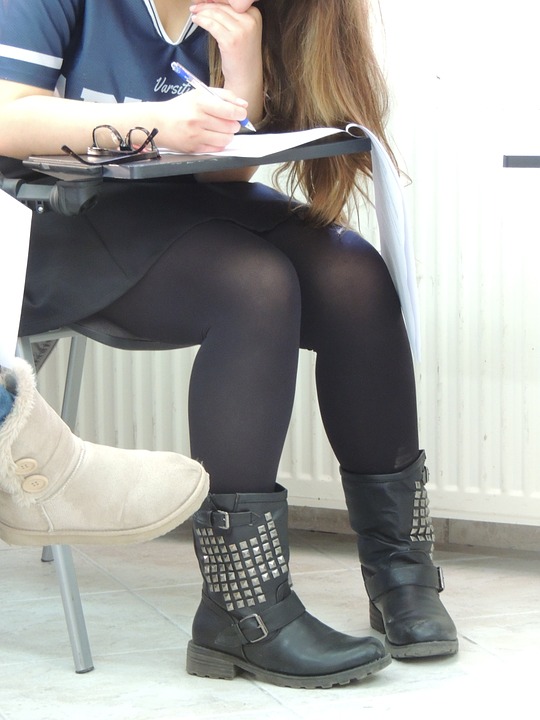Joint life insurance policy for couple...how beneficial?


A majority of Indian students choose engineering courses, after studying Intermediate. Indian Institutes of Technology (IITs) are the most advanced Technology education university in India. They are among the top universities in the world. There is no doubt that a student who has studied in IIT has a golden future. Every year, top companies in India and abroad compete with each other, by grabbing graduates from IITs through granting them packages worth lakhs of rupees. This is the proof for showing that education in IITs is recognised worldwide. Have a look at the admission procedure in these institutes as well as National Institute of Technology (NIT) and other prestigious engineering colleges.
IITs and NIT offer bachelor and post graduate degrees in engineering and technology. There is a lot of recognition worldwide for these courses. It is well known that IITians are forward in job skills. It is a well known fact that IITians are holding key positions in top companies, in India and abroad.
IIT centres
There are 23 IIT centres in the country. Annually, any one IIT will conduct the entrance tests. There are more than 9,600 seats in all the IITs combined. The entrance examination is conducted in two phases, mains and advanced, annually, for 4-year B.tech, B.Pharmacy, 5-year B.Arch, Bachelor of Design, Integrated M.Sc. and M.Tech courses. Starting this year, this exam is going to be conducted even abroad, for foreign students aspiring to join IITs. Foreign students can write only the advanced phase of the exam.
Qualifying exam Joint Entrance Examination (JEE) is conducted annually, for the seats in IITs. This is conducted in two phases. The first 1.5 lakh students who get through IIT mains are qualified to appear for the advanced entrance test. The top rankers, including the first 20 per cent qualified students, will be considered for admission. The marks obtained in any previous examination, will not be considered. Mains exam is essential.
Joint Entrance Examination (JEE) is conducted annually, for the seats in IITs. This is conducted in two phases. The first 1.5 lakh students who get through IIT mains are qualified to appear for the advanced entrance test. The top rankers, including the first 20 per cent qualified students, will be considered for admission. The marks obtained in any previous examination, will not be considered. Mains exam is essential.
Admissions
A student, who has written JEE, will be eligible for admission in to University of Technology in Banaras Hindu University and Indian School of Mines in Dhanbad. Also, they can take admissions in Indian Institute of Information Technology (IIIT) or Central Footwear Training Institute (CFTI). JEE candidates can seek admission in all technological educational institutes that are funded by the Centre or any State government.
Qualifications for 2017 mains
Those who have passed Class XII or are appearing for Class XII exam, are eligible to appear for JEE Mains. There is no weightage of Intermediate marks, in JEE Mains, through which the students will be ranked at a national level. However, the candidate should have scored at least 75 percent in Class XII for admission or should have passed Class XII within the top 20 per cent. But for SC, ST students, the qualifying mark in Class XII is just 65 per cent. The students should not have crossed 23 years of age. They should have studied at least five subjects in Class XII. The number of attempts for writing JEE is limited to three per candidate.
Students, who are seeking admissions to B.E. or B.Tech courses, should have studied any language, along with Physics and Mathematics in Intermediate. Also, they should have studied Chemistry, Biology, Biotechnology or technical vocational subjects. They should have studied a fifth subject in addition to the above.
For admissions to B.Arch and B.Planning courses, the eligibility criteria are Intermediate in Mathematics, along with five other subjects. They should have passed Class XII Central or State Board exam. For example, board exams with ISC or CBSE syllabus. Those who have written the two-year joint Service Wing exam, conducted by National Defence Academy (NDA) are also eligible. Students who have passed Senior Secondary Examination, conducted by National Institute of Open Schooling, with five subjects are also eligible. Candidates who have studied 10+2 course under Association of Indian Universities (AIU) are also eligible to write JEE.
Mains vs. Advanced
There will be two papers in Mains. Paper I is meant for admissions to B.E and B.Tech courses. Paper 2 is for admissions to B.Arch B.Planning courses. Only those who have qualified in the Mains are eligible for Advanced test. This also consists of two papers to be written in three hours time.
The successful candidates in Mains but not in Advanced are eligible for admissions to IIT and CFTI courses. But for admissions to IIT and NIT, they should definitely succeed in Advanced test also. Seats are guaranteed for students who have scored a good rank in Mains and are also successful in Advanced, in IIT and Indian School of Mining. Even other educational institutes like IISR and RGIPT take the Advanced score into consideration. But these institutes do not participate in IIT counselling.
The process of applying for JEE Mains begins every year in the third week of November. The exam will be conducted in the first week of April. Results are announced in the first week of May. The applications for JEE Advanced will be accepted in first week of May. The exam is held in June. Lakhs of students compete in this exam every year.
IIIT Indian Institute of Information Technology (IIIT) is meant to fulfil the need for human resources in Information Technology (IT) field. The Centre has set them up. IIIT has been established for the first time in Hyderabad. The institutes were later started in Bengaluru, Gwalior, Allahabad, Kanchipuram, Kerala, Bhubaneswar, and Jabalpur, Pune, Delhi and other places.
Indian Institute of Information Technology (IIIT) is meant to fulfil the need for human resources in Information Technology (IT) field. The Centre has set them up. IIIT has been established for the first time in Hyderabad. The institutes were later started in Bengaluru, Gwalior, Allahabad, Kanchipuram, Kerala, Bhubaneswar, and Jabalpur, Pune, Delhi and other places.
All India Engineering Entrance Examination (AIEEE)
It is an exam conducted by Central Board of Secondary Education (CBSE) at the national level for undergraduate engineering and architecture courses. This is an eligibility test for students seeking admissions in 30 NIT centres and IIITs. Ranks are allotted at the all India and state levels. However, this has been scrapped from 2013 and JEE has been brought in. Since then, JEE has become compulsory for NIT and IIIT.
Birla Institute of Technology and Science (BITS)
There are other education institutes besides those mentioned above. One among them is BITS. It has campuses in Pilani, Hyderabad and Goa. BITSAT is conducted every year, for admissions into engineering courses. This too is of a high standard like JEE. Competition also is very tough. Students who have passed 10+2 from any recognised education board in the country are eligible to write BITSAT. They should have scored 75 per cent marks each in Mathematics and Chemistry. The score in other subjects should be above 60 per cent. English skills are also important.
The exam will take place for three hours online. Questions will be of objective and multiple choices. Every right answer will attract three marks. Each wrong answer will get minus one mark. The marks allotted for each paper are as follows: Part 1, Physics, 40 marks; Part 2, Chemistry, 40 marks; Part 3, English proficiency 15 marks, Logical Reasoning, 10 marks; Part 4, Mathematics, 45 marks. Altogether the exam is for 150 marks.
Vellore Institute of Technology (VIT)
It is a prestigious engineering institute of technology at Vellore in Tamil Nadu. It conducts an exam every year for admissions. Students seeking admissions should have passed: 10+2 from any Intermediate Board, a pre-University examination, High School Certificate from Cambridge University or International Baccalaureate Diploma or Advanced level General Certificate Education Examination. They should have scored 60 per cent marks in Physics, Chemistry, Mathematics or Biology. SC, ST students need to score 50 per cent marks. Candidates write VITEE for 160 marks, over 2.5 hours. There is no negative marking for wrong answers.
Manipal University
Manipal university conducts MUCET in the engineering colleges where it is recognised, every year. Candidates seeking admissions should have passed 10+2. Also those who have International Baccalaureate, American 12th grade or 50 per cent marks in either Mathematics, Physics or any optional subject. They should have studied English, Mathematics and Physics. Optional subjects are Chemistry, biotechnology and biology. The exam will be held for two hours. There will be 200 questions. The marks allotted for each paper are: Physics 50; Chemistry, 50; Mathematics, 70 and 30 marks for English and general aptitude.
Sree Ramaswamy Memorial (SRM) University
It is a deemed university in Tamil Nadu. The university conducts SRMEEE every year, for students seeking admissions in to engineering courses in its campuses. Candidates should have passed 10+2 or completed any equivalent courses, scoring at least 70 per cent in Mathematics, Physics and Chemistry. The exam will be conducted in four phases. Each part is for 35 marks. One mark is subtracted for every wrong answer in Mathematics, Physics and Chemistry and 0.7 per cent for every wrong answer in biology.
IETE
Institute of Electronics and Telecommunications Engineers (IETE) conducts two kinds of exams every year. One is for Diploma Member (DM) and the other is for Associate Member (AM). For DM, the students should have studied Class X and for AM they should have 10+2. For AM, the students should have Mathematics, Physics and Chemistry as subjects in Inter. Knowledge of Electronics, Telecommunications and Electric Engineering, is also useful. Diploma holders in IETE are also eligible. Eligible candidates for AM will have to write exams Section A and Section B. After this, they will have to complete a practical training course for two years. Then they will be given Degree in Electronics and Telecommunications that is equivalent to a degree in Engineering.
Aeronautical Society of India
This is a well known institute for aeronautical engineering which conducts exams twice a year for Associate Membership. These comprise of Section A and Section B. A student, who gets through these exams, will obtain a degree equivalent to Bachelor Degree in Aeronautical Engineering. This is recognised by the government. The students should have passed Physics, Chemistry and Mathematics with 50 per cent marks in 10+2. Other details regarding the course can be obtained from the site http://www.aerosocietyindia.in



















